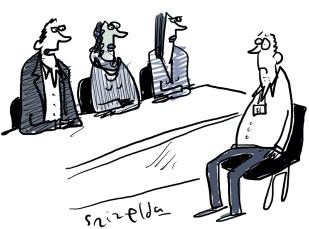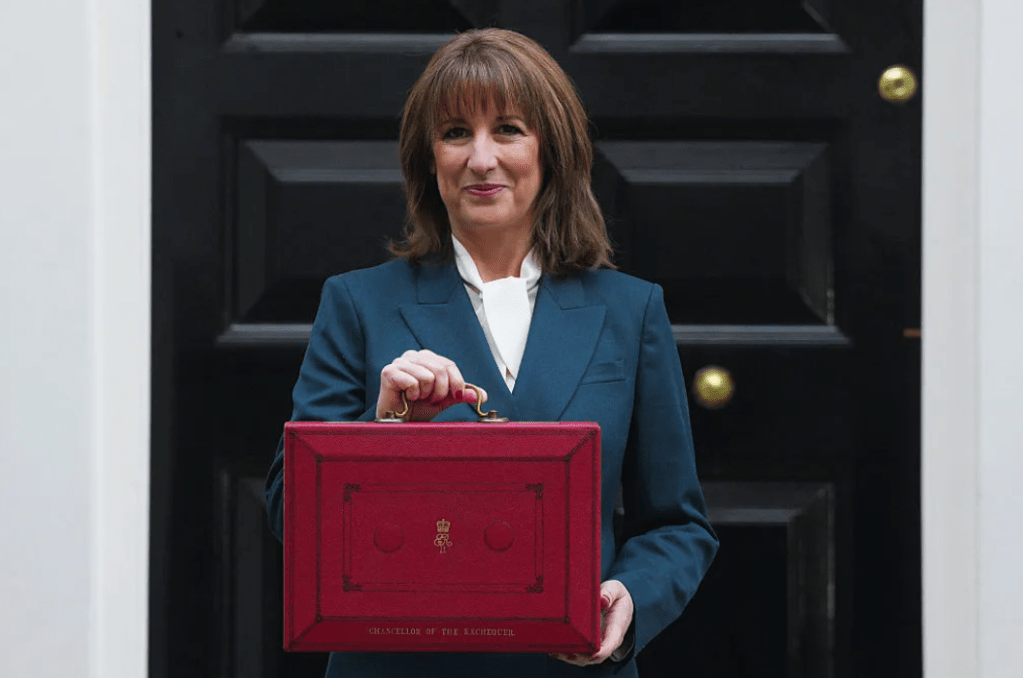
How hard is your soft power? According to David Lammy, Britain’s soft power is so strong and underrated that he has decided to set up a ‘soft power council’ to show just how hard we are.
Put aside such details as waste and futility for a second. Surely there is something rather embarrassing about boasting about such things? It reminds me of the phrase ‘muscular liberalism’. A person may define the political concept of muscular liberalism. He may even be described by others as a ‘muscular liberal’. But no one should go around declaring themselves to be such a thing, without expecting to be greeted with a chorus of ‘I don’t doubt it, dearie’ and the like.
It was inevitable, from the moment she first appeared, that the diverse woman of colour would be the hero
So it is with boasting about your soft power. If you have to go on about it, the chances are you don’t have it – or that you are losing it.
Only one part of the hubris of Lammy’s initiative (if we can call it that) is that Britain’s soft power seems to be wilting all the time. Occasionally I like to take my head out of a book or glass and watch something on the screen. By now I am probably subscribed to every streaming platform on the planet, because every now and then I like to go on a good old binge. In recent weeks I had two particular beanos. I decided to watch the remake of The Day of the Jackal (Sky Atlantic, Peacock etc) and also Lockerbie: A Search for Truth (Now TV, Peacock). But something struck me as I watched them both.
I had selected them carefully. One reason that I don’t regularly watch drama, let alone domestic TV, is that I am fed up with being preached at by scriptwriters and goaded by casting directors.
Everyone has their favourite examples, but it is generally agreed that a high-water mark was reached when Netflix made their Anne Boleyn series and cast a black actress as Henry VIII’s wife. Afterwards, all pretence that the viewer wasn’t being taunted in a ‘Go on, I dare you to object’ fashion had to be dispensed with. If you already knew the story of Anne Boleyn then everything was distracting. If you didn’t know the story then you would come away thinking that in the 16th century an English king went to a great deal of trouble to marry a black woman, only to then kill her and her family.
Still, I thought at least some high-quality drama might avoid this nonsense, or at least keep it to a tolerable level.
I wonder how Frederick Forsyth allowed so much of it to be built into the latest adaptation of his novel. In The Day of the Jackal it was inevitable, from the moment she first appeared on screen, that the diverse woman of colour would of course be a ballistics expert, top MI6 agent and the most urgently needed person for shoot-outs in the field. Sure enough, she was the main hero. Because, as I am sure we all agree, modern British drama must communicate to young black girls everywhere that if they believe in themselves enough and work really hard then they too will be allowed to kill people in cold blood and then get shot.
I struggled on. Most of the acting was superb. Eddie Redmayne was deliciously cold and cool, and I don’t think I’ve ever seen such lavish spending on luxury locations. But something started to niggle each time I clicked ‘next episode’.
The main one was that the British security services – diverse people of colour aside – were all portrayed in a rather negative light. In fact every arm of the state, particularly politicians, were portrayed in a powerfully awful light. As of course were all capitalists. Once it became clear that the other baddies were Northern Irish Protestants from a loyalist paramilitary group, I started to take notice of the credits. And there I saw it. Ah – the whole thing was written by Ronan Bennett.
For anyone who is fortunate enough not to know about him, Bennett is a Guardian writer, scriptwriter for the BBC and a lifelong admirer of the Irish Republican cause. A supporter of Gerry Adams and Jeremy Corbyn, he got into a certain amount of bother a couple of decades back when he said that if he knew where the Omagh bombers were (the murderers of 29 people, including 12 children) then he would not inform the police.
Once I noted the series writer, everything else fell into place. The wildly nasty portrayal of all British officials, the horrible portrayal of Northern Irish Protestants, the violence of the British state, the comic-book evil of all businessmen. Everything made sense.
For some light relief I turned to Lockerbie: A Search for Truth. My hopes were high. Colin Firth is a lovely actor and masterfully plays Jim Swire, who lost his daughter on Pan Am flight 103 and campaigned for years to get to the truth of what happened. While the drama may drag at times, the acting and horrific recreations brought that awful terrorist attack back to prominence and managed to vaguely entertain as well as inform.

But somehow I knew what was coming. The wicked cover-up by British officials. The inevitably scheming and suspicious behaviour of the Americans. The sympathetic, lovable Libyan agents and their charming, caring families.
Then in the final episode we got it. The local Scottish journalist who has been alongside Swire all these decades as he searched for the culprits sums up the whole thing. Who did the bombing? ‘It was Libya, it was also Iran and Syria and the Palestinians. I don’t think we ever truly realise how much the West is hated. And no wonder. Look how we act. Look what we do. Look how we justify it. I mean – always someone else, never us.’
I would beg to differ. The one thing you can predict with 100 per cent certainty about any cultural export from the UK is that the bad guy is always us. Never someone else.
Perhaps David Lammy’s exciting new committee could look into this. What future is there for a country whose hard power has gone soft, and whose soft power appears to hate us?







Comments